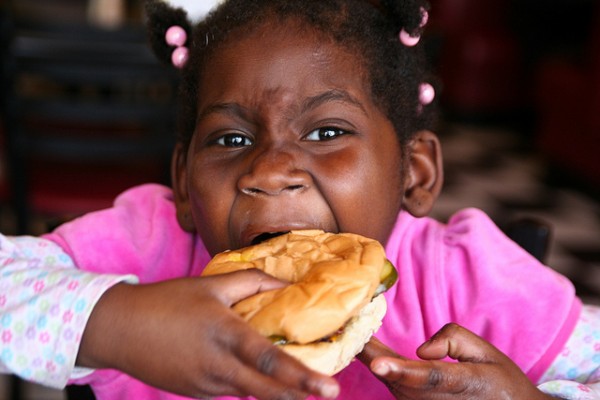Family Disputes Up the Risk of Childhood Obesity: Study

Obesity risk is very high for children of dysfunctional families or divorced parents, according to a study.
Families that eat together stay together, goes an old saying. A recent research by Norwegian experts found frequent family squabbles, divorce rates and unhappy home environment influence the dining habits of a family and children's health. Their study recorded waist measurement, height and weight of 3,166 third graders and assessed the quality of family relationships and parental marital status.
Their analysis revealed children of divorced parents were 1.54 times more likely to put on excess weight than those from healthy and normal families. Another study involving 7,915 children from eight European countries discovered the association between eating breakfast and dinner with parents and increase in body weight. It was noted that children who ate morning meals with their parents for five to seven times in a week had 40 percent reduced chances of becoming overweight.
The researchers observed 30 percent reduction in obesity risk among children who ate dinner with their parents for five to seven times in a week. Children who frequently had lunch with parent, showed 20 percent more probability for chronic weight increase.
A past experiment by Danish scientists suggests family quarrels and arguments at meal time can make young children become food choosy or develop pickiness. The findings of all studies point out parental disputes and family relations as key determinants of eating habits in young children. Poor eating choices like skipping breakfast, overeating or bingeing on fatty junk and sugary snacks are common in children from dysfunctional families due to lack of parental supervision. As a result, they fall prey to serious health conditions like putting on weight, obesity and diabetes.
The current research was presented at the annual meet of the European Congress on Obesity in Sofia.
May 31, 2014 07:36 AM EDT





